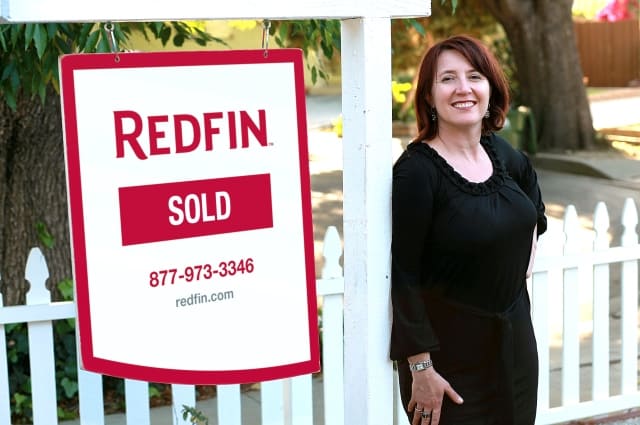Buying a home as a single parent can be challenging. Single-parent families don’t have the benefit of dual incomes; therefore, the total household income is often lower for a single parent than it is for most dual-income families. This can make it difficult to obtain a mortgage loan with a favorable interest rate.
But home ownership has many advantages, especially for single parents who desire the feelings of independence and self-sufficiency home ownership provides. Additionally, by buying a home, you’re building equity and establishing financial independence that can prove beneficial later in life.

To help single parents navigate the murky waters of buying a home and obtaining financing, we’ve put together this comprehensive guide covering the pros and cons of home ownership for single parents, home buying grants and other assistance options, the ins and outs of obtaining a mortgage loan and navigating alternative financing options, and everything you need to know to get started on your path to home ownership as a single parent.
Why Single Parents Should Consider Home Ownership
There are both pros and cons to home ownership, but owning your own home is still largely considered “The American Dream.” In most cases, the benefits of home ownership, particularly for long-term financial well-being, outweigh the downsides. With careful planning, you can purchase and maintain a home without overstretching your budget. The following resources provide information on the pros and cons of home ownership for single parents.

If the value of your home rises, over time as you pay down your mortgage, you’ll build equity. As this resource points out, selling your home in a few years could earn you a profit, depending on market conditions, the value of your home, and the remaining balance on your mortgage.
More singles are diving into home ownership than ever before. In 2010, single females accounted for 20 percent of all home buyers, while single men accounted for 12 percent.
Home ownership provides stable housing for your family. As this resource points out, homeownership and stable housing go hand-in-hand. However, families who must move frequently may opt for more temporary rental options rather than home ownership.
As a single parent, you are more likely to qualify for low- to moderate-income home ownership programs. Many single parents have total household incomes which are less than that of families with two incomes contributing to the total household budget, which can be beneficial in qualifying for home-buying assistance and special lending programs.
Owning a home affords you several tax benefits. As this article explains, federal tax credit programs for first-time buyers ended in 2010. However, homeowners can still take advantage of the mortgage interest deduction as well as other benefits.
Buying is cheaper than renting over the long-term. In many areas across the U.S., rental prices are on the rise, and mortgages can be obtained for monthly payments that are actually lower than average rental prices in many areas. Not to mention, when you make a mortgage payment each month, you’re building equity that can later be turned into cash when you sell the property for a profit. And, by the way, proceeds from the sale of a principal residence are excluded from capital gains tax.
Get local advice at a free Home Buying class
Finding a Suitable Home and Determining Your Budget
Finding the best home for your family isn’t as simple as merely searching the market, touring a few dream homes, and obtaining a mortgage loan through a lender. The following resources offer information on the things you should consider before determining your price range and in choosing the perfect home, as well as information on searching special housing programs for affordable housing options.

Use an affordability calculator to determine how much home you can afford. Calculators such as the affordability calculator offered by Bankrate are simple tools that help you to determine your ideal price range for purchasing a home, based on your income, down payment amount, monthly expenses, and other factors.
Search for a home available through the Housing and Urban Development (HUD) program to take advantage of special homeownership programs. This resource enables users to search for HUD properties available under special programs throughout the U.S. For instance, certain HUD-owned homes are made available to home buyers for as little as one dollar to help local governments foster housing opportunities.
If your loan-to-value ratio exceeds a certain threshold (typically 90 percent), your mortgage lender may require you to have mortgage insurance. This will add to your monthly payment amount, so be sure to consider whether you’ll need to purchase mortgage insurance when determining your price range for your new home. Often, mortgage insurance adds between $100 and several hundred dollars to the monthly payment, depending on the purchase price of the property and the amount you’re financing.
Understand what counts as income. The amount you can borrow through a mortgage loan is typically dependent on your debt-to-income ratio. This article outlines some types of income that may be considered as income in order to qualify for a mortgage loan.
Consider home maintenance requirements. Homes with several acres of land in a beautiful rural setting may appeal to some home buyers, but single parents should consider the maintenance requirements that come with home ownership. For instance, if you’ll be driving your children to extra-curricular activities during the week and on the weekends, you may have less time to spend mowing the lawn and keeping up with other household tasks. Unless hiring outside help is within your budget, keep in mind that as a single parent, you’ll be handling the bulk of household maintenance tasks on your own.
Know what you’re looking for when searching for a home. This checklist can be printed and taken along when you tour potential homes, helping you narrow down the possibilities to the homes that best meet your family’s needs.
Grants and Assistance for Single Parents
Single parents, as they don’t have the benefit of two incomes contributing to the family’s overall income, often qualify for special financing and other programs to make it easier for low- and moderate-income families to purchase suitable homes. The following resources provide helpful information on the various assistance options, including grants, available to many single parents.

Consider looking into programs such as Habitat for Humanity if you have a low income. Habitat for Humanity helps low-income families obtain suitable housing based on the family’s need, willingness to partner with the organization, and ability to repay an interest-free loan.
An Individual Development Account (IDA) is another option for single parents who want to purchase a home. IDAs are matched savings accounts, typically set up through a community organization, designed to help low-income families purchase homes, finance education, or fund a small business. Search for an IDA program at this site.
You may qualify as a first-time homebuyer, even if you owned or resided in a home with a spouse during the last three years. Qualifying as a first-time homebuyer makes you eligible for financing programs specifically designed for first-time buyers.
HUD offers a Homeownership Voucher program, similar to the Housing Choice Vouchers rental program but offering assistance to qualified families who want to purchase, rather than rent, a home. Families must be enrolled in the rental program first, and upon qualification can substitute the rental vouchers they were receiving for homeownership vouchers.
The Community Development Block Grant Program (CDBG) awards annual grants to state and local entities to provide safe, affordable housing to residents. These funds are awarded by the agencies receiving the grants to local applicants. There are several programs under the CDBG program that may benefit single parents.
The Mortgage Lending Process, Qualifications, Down Payment Assistance, and Other Tips
Achieving the dream of home ownership and the freedom and independence it affords families means, for most buyers, qualifying for a mortgage loan. This can be tricky when your family relies on one income, if your credit history is less than perfect, and you’re working on a tight budget. The following resources offer helpful tips and information on the mortgage lending process, qualifying for financing as a single parent, and options for getting assistance with your down payment.

Check your credit. Before applying for a mortgage loan, it’s a good idea to check your credit report first. This allows you to identify and correct any inaccurate information before it can hurt your chances of qualifying for a loan.
Consider getting pre-qualified for a mortgage loan. As this resource suggests, getting pre-qualified can help you determine which homes are within your price range, which can save you time in the search process and avoid delays later in getting qualified for financing.
Look into options for receiving assistance with your down payment. The Nehemiah Foundation provides a database of organizations offering down-payment assistance for moderate- and low-income, first-time homebuyers who meet eligibility criteria.
The Federal Housing Administration (FHA) mortgage program allows down payments of as little as 3.5 percent, in some cases. As this article points out, it’s wise to save as much as possible to put towards a down payment, but there are options to reduce the minimum down payment needed to qualify if you don’t have ample cash saved to make the standard 10 to 20 percent down payment. Visit this page to search for an FHA lender.
Single Family Housing Direct Home Loans are offered through the USDA. Also known as the Section 502 Direct Loan Program, this program offers payment assistance via a subsidy that reduces the mortgage payment amount for a short time in order to increase an applicant’s repayment ability.
Create a monthly budget, and stick to it. This is particularly important when purchasing a home to avoid defaulting on your mortgage loan. And if you’re recently divorced, it can be quite an adjustment from a dual income to maintaining a home and all the associated costs on your own. A clear-cut budget that accounts for all of your expenses will keep you on the right track. Bankrate offers a free budget planning worksheet that can get you started.
Develop a plan to ensure you pay all your bills on time. In addition to a monthly budget, some single parents find it helpful to have a system to ensure that no bills are inadvertently forgotten.
If your financial status suddenly changes due to being unexpectedly laid off or some other unforeseen circumstance, know where to turn for help staying in your home. Homeowners often find themselves in trouble after sudden, unexpected changes in income or expenses, but there are programs available that can offer temporary assistance to help you stay in your home and avoid defaulting on your mortgage. Familiarizing yourself with these options before you purchase a home means you’ll be better prepared for whatever obstacles life may throw your way.
Know your rights as a borrower. Home buyers have certain rights when it comes to obtaining a mortgage, such as being informed of the total costs and receiving a Good Faith Estimate of the loan and settlement charges before you agree to the terms and pay any fees.
Other Financing Options for Single Parents
Finding a home you want to purchase is (sometimes) the fun part. When it comes to obtaining financing, things can get tricky for single parents. If you are having trouble qualifying for a traditional mortgage loan, there may be other options available to you. The following resources offer helpful information on alternative financing options and discover what homeownership programs for which you may qualify.

Contact your local housing authority to find out about homeownership programs available locally. This resource lists and links to local housing authorities in all 50 states.
Talk to a housing counselor through Housing and Urban Development (HUD). HUD sponsors housing counseling agencies throughout the U.S. to provide free or low-cost advice to prospective home buyers as well as families and individuals who already own a home, but are seeking assistance to avoid foreclosure and other issues. HUD counselors can speak to you about buying a home, renting, default, foreclosure avoidance, credit issues, and reverse mortgages.
The United States Department of Agriculture (USDA) offers financing options for low- to middle-income families purchasing homes in rural areas. One such possibility for those who qualify is the ability to purchase a home with no down payment. Visit the USDA website for more information and to find out if a property is located in an eligible area.
HomePath Renovation Mortgage Financing is an option for single parents who are interested in purchasing a property that requires some fixing up. This program, offered through Fannie Mae, allows home buyers to borrow enough funds to pay for the property and the renovations necessary to make the home livable.
Check for local home-buying programs offered by your state. The HUD website offers a useful list of links to each state, outlining resources for local state-administered home-buying programs.
Buying a home as a single parent can be quite rewarding and helps to solidify your financial independence. While buying a home is not a simple, easy process for any buyer, it can be even more challenging for single parents. By planning ahead, saving for a down payment, and investigating all the available options outlined in this guide, you’ll be well on your way to owning your own home.
